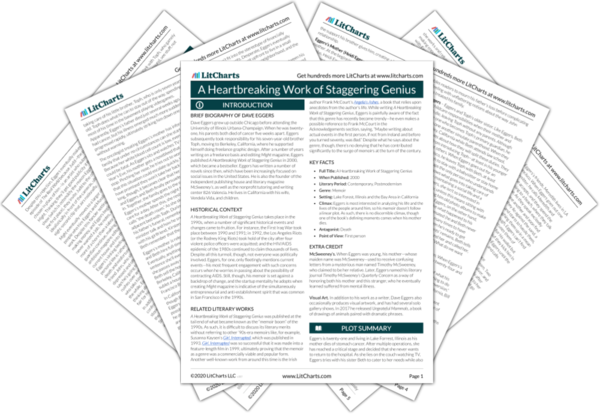The worst part about these superficial conversations is that they force Eggers to say vapid things that ultimately trivialize his experience. When this mother at the open house says, “What a good brother you are!” he has no choice but to shrug and say, “Well, what are you gonna do?” In turn, he ends up talking about this very difficult experience like it’s a mere inconvenience. By showcasing the ways in which conversations like these aren’t appropriate for discussing such serious matters, Eggers illustrates the gulf of misunderstanding between someone like him and someone like this mother. Although she means well, she does nothing but annoy Eggers, forcing him to be polite as he talks about the hardest thing he’s ever experienced in his life.
